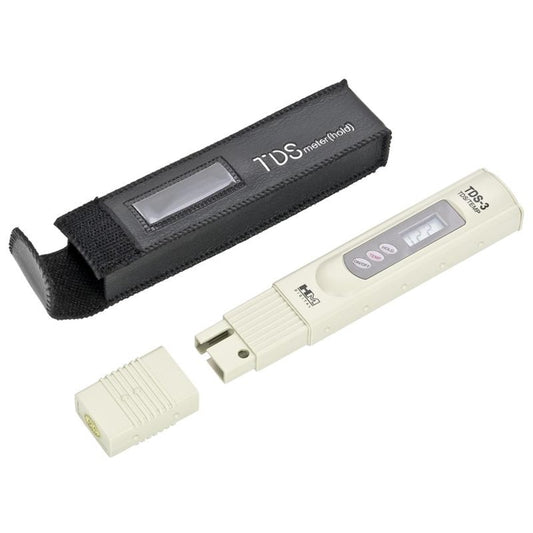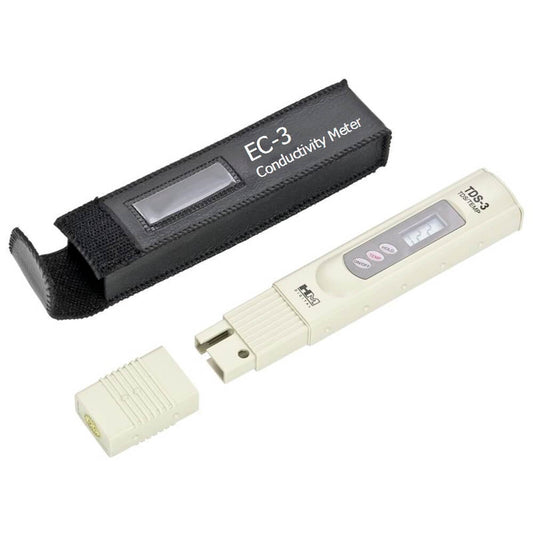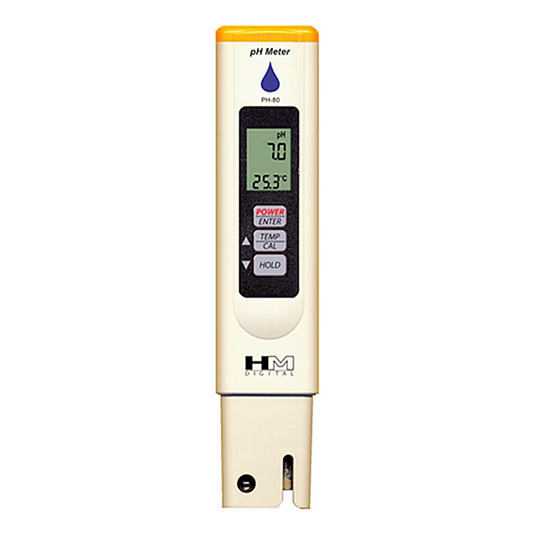-
TDS meter including case HM
Regular price 26,97€Regular priceUnit price per30,59€Sale price 26,97€Sale -
EC3 measuring device including case HM
Regular price 29,97€Regular priceUnit price per -
pH-80 meter
Regular price 69,97€Regular priceUnit price per
Measuring instruments - Conductivity meter in the measuring units ppm and µS
A conductivity meter is used to measure the conductivity or the quality of the osmosis water or tap water.
The measuring range is 0-9990 ppm with a TDS meter or 0-9990 µS with an EC3 meter . Using a conductivity meter, you can check whether the conductivity of your reverse osmosis water is acceptable or whether a filter change is necessary. If the conductivity of the reverse osmosis water rises above 60 ppm, a filter change is recommended to lower the conductivity and thus improve the water quality. If the conductivity does not drop to a lower level despite changing the filter, it is possible that the membrane is worn out and needs to be replaced.
An overview of the water values, measured in µS (microsiemens) and ppm (particles per million), makes it easier for you to determine whether your osmosis water or tap water is in an optimal range or whether there is a need for action to improve your water.
Water with concentrations as low as 300 µS or 200 ppm has a negative impact on the body. Its purifying and detoxifying effects are no longer present. The body increasingly accumulates toxins, as pollutants and acids remain in the body. We recommend that you always pay attention to the quality of your drinking water. Pure drinking water – reverse osmosis water – has a very positive effect on your health!



